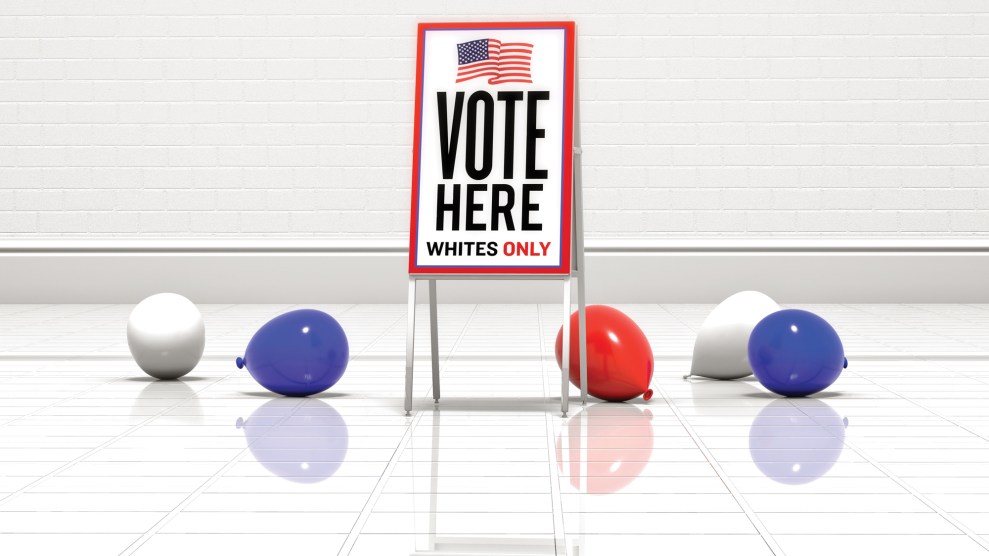
Matt Chase

In most states, the power to expand or curtail the right to vote is largely in the hands of an obscure official, the secretary of state. Thirty-one of these secretaries are currently Republicans or aligned with the GOP. And four of them have gone to extraordinary lengths to make it harder to vote.
Jon Husted of Ohio: Husted, who is running for governor next year, has purged more than 2 million voters since he took office in 2011. Voters are deemed “inactive” if they fail to respond to “purge notices” from the state, which are sent to residents who either move or don’t cast a ballot for two years. In Ohio’s three largest counties, voters in Democratic-leaning neighborhoods have been purged at about twice the rate of people in Republican-leaning ones. This fall, the Supreme Court will hear a case on Ohio’s practice of targeting voters for inactivity. If it rules in Husted’s favor, his brand of purging could catch on in other Republican-controlled states.
Brian Kemp of Georgia: Another 2018 gubernatorial candidate, Kemp recently came up with a similar way to remove poor and minority voters from the rolls. He instructed local election officials to mail notices to more than 380,000 registered voters, targeting people who had recently moved. Those who failed to respond within 30 days were placed on the state’s inactive voter list; they’ll be purged from the rolls if they don’t vote in two consecutive federal elections. The American Civil Liberties Union filed a petition in court alleging that some of the notices violated state and federal laws and that the scheme disproportionately affected low-income and minority voters. In response to the lawsuit, Kemp said his office would make sure that nearly 160,000 people who improperly received the notice would remain on the active list; the ACLU, apparently unconvinced, responded that Kemp had to notify those people of the change and take further action.
Kris Kobach of Kansas: The torchbearer for the anti-immigration movement, Kobach, who is also running for governor next year, serves as vice chairman of Trump’s election integrity commission, allowing him to fearmonger about voter fraud and push for restrictive voting laws at the national level. As secretary of state, Kobach convinced the Kansas Legislature to pass a strict voter ID and proof-of-citizenship law, which by 2015 had blocked 35,000 Kansans from registering and is the subject of multiple ongoing lawsuits. Kobach also convinced the Legislature to give him the power to prosecute voter fraud cases, a power no other secretary of state has. Since then, he has achieved just nine convictions. One was of a noncitizen; several were of older voters who owned property in other states and were confused about the rules.
John Merrill of Alabama: Merrill’s latest ploy involves the state’s 1901 constitution, adopted for the express purpose of entrenching white supremacy. The constitution disenfranchised voters convicted of any crime of “moral turpitude” but never defined which crimes qualified. The result was that about 290,000 people were unable to vote, including 15 percent of the state’s black electorate. Earlier this year, the Legislature finally clarified which felonies would cost offenders their voting rights—and thousands of people convicted of lesser crimes became eligible to vote again. But Merrill doesn’t think the state has a responsibility to inform those people that their voting rights have been restored and has refused to spend state resources to do so.





